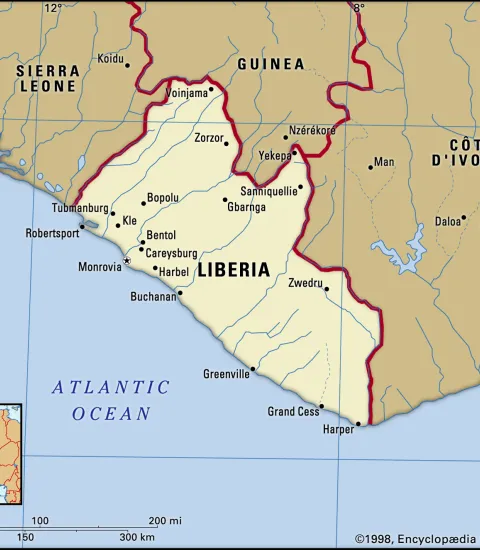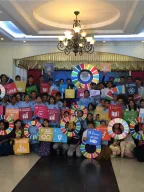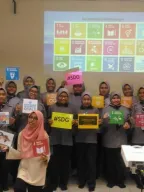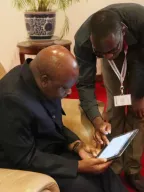The Pan-African Volunteers Network
Practices & Experiences
The Pan-African Volunteers Network
Lead organization
Pan-African Volunteers Network
Partnerships
Civil society organization
Overview
The Pan-African Volunteers Network is a West African youth network established in Liberia in 2018 to serve as a bridge for community volunteers, youth activists and community-based organizations to network and partner to drive effective changes in their communities through collective actions. Since the network was established in 2018, members have implemented youth-led projects in Liberia, Ghana, Nigeria, Togo and Guinea. These include The National Girls In Leadership advocacy and training initiative, which reached 200 girls to empower them to take the lead in their communities, and the ‘Volunteers Talk’ series in which 350 youth volunteers were connected with experienced volunteers and professionals to exchange information and ideas around the contributions of volunteering to sustainable development. The Network holds regular workshops and a National Youth Summit on Sustainable Development to bring youth volunteers together, raise awareness about the SDGs and connect volunteers to professional experts. To date, PAVON has held two editions of their national Summit, in the cities of Monrovia in 2018 and Gbarnga in 2019, reaching over 500 young people. At the 2019 edition of the Summit in Gbarnga, the network launched a national call to action against plastic pollution in the ocean.
SDG contribution highlights
More than half of the Liberian population, and over 64% of the population in West and Central Africa, are under the age of 24 years old. However, young people rarely get a say on the issues and decisions that affect them, even when they are actively volunteering as part of solutions. The PAVON network is an example of new initiatives that strengthen the collective capacities and voices of young volunteers. The network is 100% led by volunteers with a decentralized leadership structure spread across teams of volunteers. Projects are designed and implemented through collective action, with the inputs of youth of all genders, ethnic and religious backgrounds considered in the decisions of each group. PAVON’s national and regional knowledge-sharing events, workshops and summits provide opportunities for community youth volunteers to engage with institutional actors. To date, these have included the Environmental Protection Agency of the Government of Liberia and the Federation of Liberian Youth, as well as established civil society organizations.
Lessons learned and success factors
PAVON works through a youth-led decentralized leadership and decision-making structure. The Network has found that this keeps the organization flexible and adaptive to meet community needs and incorporate innovations as they emerge. However, as a result, the network had struggled to reach institutional development actors for support or partnership.









